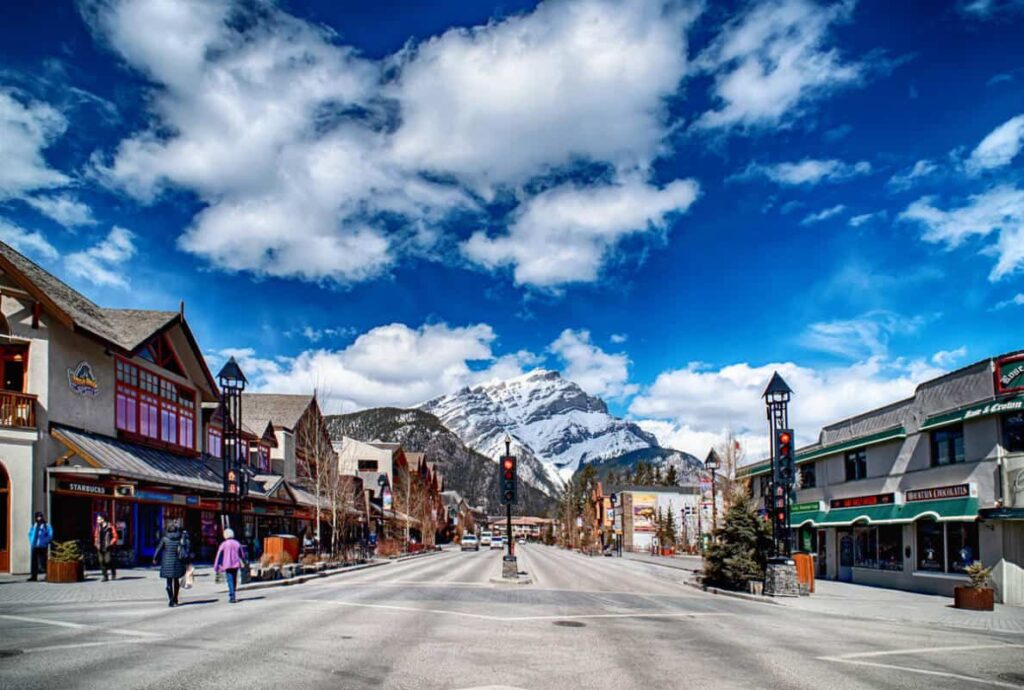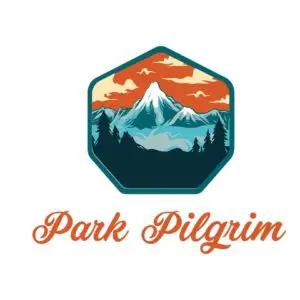A working holiday in Banff offers an exciting opportunity for international working experience. But Banff is expensive, so make sure you’ve saved up about CAD 5,000. It’ll cover your initial expenses in the park, and you’ll have some money left for rainy days. Neglecting to budget your stay in the park can leave you struggling financially.
It’s not just about budgeting for the price of a flight or accommodation. A Banff working holiday can be stressfully expensive, especially when you’ve just arrived and haven’t found a job yet.
This article explains why you should save CAD 5,000 to avoid financial difficulties.
Expenses Before Arriving in Banff
Before I explain why you need to have saved up at least CAD 5,000, I will first discuss the upfront costs associated with traveling to the park.
I’m talking about flights and other means of transportation. And you also might need accommodation while on your way to the park.
These costs can add up depending on your location and the time of the year you travel. Add to it other expenses like travel and (international) healthcare insurance, and you’re easily looking at spending CAD 2000 or more before you’ve arrived in Banff.
Why Do You need to Have Saved Up CAD 5,000?
Obviously, the rounded figure of 5,000 CAD is only an estimate. Probably, you could get by with less. It depends on several factors.
Probably the most critical factor is how long it takes to find a job. Let me tell you about my experience and how I went about it.
I remember I had about CAD 7,000 in savings when I arrived in Banff. I had no job, and I was staying in a hostel. I allowed myself one week to explore the town, have fun and relax.
That week taught me how expensive Banff is, despite my relatively cheap accommodation. Before I knew it, I had shelled out hundreds of dollars on lodging, groceries, going to bars and eating out.
Nothing outlandish, but Banff entices you to have fun all day. And while that’s fine – you should definitely have fun – money is spent rather quickly.
I began submitting job applications after the first week. My future employer received my resume on the second day, and I was invited for an interview on the third day. Two days later, I started working. Talking about things going smoothly…
Now that’s not typical. I guess I was lucky. In hindsight, I didn’t necessarily need so many savings.
But I arrived at the end of April, a perfect time for landing a job in Banff. Timing generally has an impact on the savings you’ll need.
Arrive in the park before the high season starts, and you’ll probably find a job quickly. And I stress probably, no guarantees here. Come during the high season, and most jobs will be taken.
The latter is important. Because if you arrive in Banff when high season is in full swing, it’ll probably take you much longer than a week to land a job.
Whether you find employment fast or not, it’s a good idea to prepare a budget that allows for unforeseen expenses. More importantly, having money in the bank will make it easier to enjoy your stay in Banff.
You’ll also need to be able to afford your stay in Banff when you don’t have a job yet. Because the cost of living in Banff is high.

Cost of Living in Banff
It is essential to understand the relative cost of living in Banff compared to other parts of Canada before committing to a working holiday in this mountain destination.
Banff is generally one of the more expensive towns in Canada to live in due to its prime mountain location for tourism and skiing.
Accommodation is typically the single largest expense you will have to pay from your budget. Even if you stay in a hostel, you will shell out close to CAD 100 per night if you arrive in the high season.
Food and day-to-day expenses will likewise be higher than in other parts of Canada. Groceries are a considerable expense for most people living in Banff, especially those not on a ski-hill job with food provided. One week’s worth of groceries will generally cost you more than CAD 100 for one person.
Costs for activities like bar visits and eating out are obviously up to you. They quickly add up as average prices are higher than in most other parts of Canada.
Here are some numbers:
According to Numbeo, Banff is 14% more expensive than other Canadian cities. Groceries are 15% more expensive in Banff, and restaurants are 3.4% more expensive than the Canadian average.
Rent is a hefty 30.5% higher than the Canadian average, and utilities are 18.7% more expensive. So expect to pay a lot for lodging or find a job with staff accommodation which is essential for most people.
To know more about this important subject, you might want to check out the following posts: Banff Seasonal Work Wages 2022 and the Ultimate Guide to Staff Accommodation in Banff and Lake Louise.
What to Use Your Savings for in Banff?
When living and working in Banff on a working holiday, the most important part of your experience is ensuring you have enough money to get the most out of the experience.
Below are five reasons your savings are essential to your Banff working holiday.
1. Unforeseen costs. During your working holiday in Banff, you’re basically building a new life. It comes with costs that you’d never thought of beforehand. Unexpected things will happen, and most things in this world cost money. Especially in Banff.
2. Ensure you have enough to cover basic necessities such as bills, groceries, and transportation. You will want to make sure you are not stretching yourself too thin.
3. You want to ensure you have enough saved to experience the park and the activities Banff offers. With a stunning landscape and seemingly endless recreational activities, it’s essential to have enough saved up to participate in all the exciting opportunities Banff offers.
4. You may also want to save some money for additional luxuries such as a nice dinner or a massage to treat yourself after a long week of work. Not only will these treats help you relax, but they also help you keep a balanced budget. After all, your working holiday should be an opportunity to save money and enjoy yourself.
And maybe you want a week or two off from work. Most employers in Banff don’t provide holiday pay. If you don’t work, you don’t earn. Savings will come in handy to enjoy a little vacation.
5. You may want to retain some of your savings to buy some souvenirs to take home and remember your travels. Now you might make enough money to pay this kind of stuff from your salary, but wages aren’t high in Banff.
In conclusion, understanding the costs associated with a Banff working holiday is essential to preparing for the experience and ensuring you can make the most of your time there.
Planning ahead in terms of budgeting and saving is key to making the experience smooth and stress-free.
Want to know all the ins and outs of getting a working holiday visa and how to find a job in Banff? Check the post Work in Banff – You Can Too.

